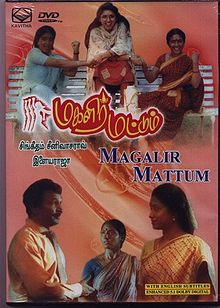by Shweta Sharan
She came to our hangouts with bruises, one bruise each visit.
I started to like them more than her, although we never talked or even exchanged glances. It was a monthly ritual. We, the dozen or so litterateurs — writers, singers, journalists, poets, dramatists, and long-breathed hangers-on —would share coffee, scotch and kheema samosas and the doorbell would ring. It was like her entry ticket to these soirees. They wouldn’t have tolerated her much anyway, these urban literary types, although their own partisan group was a motley bunch in its own sense. She loved and effused over authors too much for them to expect intellect. She agreed too much, disagreed too simplistically. She was too intense, too jejune. This was clearly not the mind of a thinker.
I thought it was much superior. It was the mind of a creator. Forget literary purists. This was a purist creator.
I didn’t know if anyone suspected foul play from her, if indeed it was foul play and if her bruises really were fake, and even then, bruises are too close to the bone to joke about or investigate, especially if they turned out to be self-inflicted. Molshree and Peter, who were usually the hosts, always made the right sounds — the exclamations, the sibilants against the husband or boyfriend, I did not know whom, the rushing of her hushed form into the kitchen to apply cold compress, her pulsating silence making the kitchen the silent epicentre of all the action. “Pleasure with pain for leaven.” Was that Swinburne? The bruises gave our meetings malleability, a core. For me, they also gave her face certain sensuality, although that was the last kind of attention that she seemed to be going for, and as for me, I was not prone to infatuation, except in a humorous, observant Alpha of the Plough way. I was just happy to be there. And so was the girl with the bruises.
The ones near her eyes caught everyone’s attention, maybe because they were dramatic and straight out of films — woman walks in with glasses that hide all to tell all. There were the ones on her back, which she unveiled with so much flinching that they forced her to take off her sweater. The ones on her legs appeared very young and romantic to me. They were mottled, scarred and suggested death, unlike the rest of us manicured, sophisticated, immortal lot.
Their owner wasn’t particularly striking. She had a very angle-dependant face that could probably be brought into startling focus with a bindi. What wouldn’t Vermeer have done with a bindi as a focal point? The bruises brought her into shape, into life, much the same way.
But the one that caught my attention the most was the one in her left hand, on her wrist, which was inward and barely noticeable, her fist drawn in and clenched most of the time. It didn’t look recent, but faded and time-worn, like a pentimento, triangular, hieroglyphic, glowing in its age-old congealment, criss-crossing with her veins like some secret wiring. I noticed it when I was told to hand round charcoal tablets for digestion and I caught her unawares because she didn’t know what charcoal tablets were and was curious.
Too much would go on with me, and I am sure with everyone, between those bruises. I grappled oddly with the teaching job, trying to retain my lodgings and fending off my mother’s furious matchmaking attempts, laughing genially in the face of all the admonishments about finding my roots or myself and having just enough curiosity about the city to keep me going, the old school nostalgia that somehow drew me to Bangalore. The litterateurs jokingly called me a fiendishly cheerful fop who collected experiences like artefacts and instead of journeying onwards with them, lodged them deep in my memory, like a strange collector of dreams.
I called them litterateurs but they were artists of all kinds and excellent raconteurs – writers of award-winning literary novels, journalists who were capable of wondrous prose constructions, publishers, activists, editors, bloggers, food critics, sports writers and even a musicologist who would occasionally enthral us with talks of capricious caprices and architectonic orders.
Even the people who hosted these shindigs, and the duties fell upon them in a circular fashion, were brilliant specimen, ushers of food and culture. Of course, they came with their bitchery and absolutisms masked in humour, wit and sudden transcendence, but that was what attracted me — no one took anything or anyone seriously, even though the work we gravitated towards was serious as hell. Or so we consoled ourselves, even as we slept around, bitched uproariously, read Hamlet with a passion and laughed in the face of the first lunatic we met on the street.
Neelam, a fifty-year-old English professor, was my confidante in these gatherings. She was capable of wit in short rations and was interested in pinning down the bruise girl’s intentions in coming to our parties.
“She seems to have crushes on them, the way she hangs upon every word they say,” she said.
“Women are in love with love itself,” I said.
“Maybe she has a crush on Anupam.”
“That could explain why she has those bruises.”
“He is sexy.”
“Does he have good features?”
“No. But at least he is not ugly or disfigured.”
“Neither am I,” I said. “As for disfigurement, it is only a car crash away.”
“You are such a tease, J.”
“Nonsense, I was only being mean.”
“Are you attracted to her?”
“She is accident-prone, to put it mildly.”
But even I had to admit that I was curious. I asked around about the bruise girl, casually enough, and found out that she lived with her lover, occasionally moving to a paying guest accommodation whenever they had their fights.
She always came alone.
She had dropped out of college and had worked in a string of jobs, managing a bookstore in her neighbourhood, photographing musicians in concerts, and allegedly assisting a physicist in editing his book.
I suspected, hell I knew, that most of them were the works of a mind that was idealistic in its pessimism — alleged love affairs with many men and women, eating disorders, being expelled from school due to an unexplained illness, an accident on a horse that rumours attributed to wanting to escape consequences, a tyrannical father, and stories of abuse, suicide attempts and the most romantic notion of them all — running away from home. If anything, her carefully cultivated reputation was unclouded by words as mundane as drugs and alcohol, when there was so much more rhythm and anticipation in violations of nature, particularly in bruises.
I was keen to talk to the bruise girl. I chose the moment, or should I say the moment chose me? It was a night-time gathering. The bark of a tree served as a table at the shindig, and was hoarded with liquors and meats.
I was surprised to find myself touching her wrist.
“Where is that from?”
She looked startled but recovered immediately.
“From childhood.”
“How did it happen?”
“I don’t know.”
“You don’t remember?”
“I do remember. But I don’t know how.”
“Come on. How is that possible?”
“I was in my aunt’s house. I remember being asleep in the living room. I was carried up to the bedroom. The next day, I noticed this.”
“Who carried you?”
“I don’t know.”
“Did you ask your aunt?”
“No.”
She leaned against a bookshelf that for some reason, I had not given a damn about before, the books weighing it down with a groan, set against the incessant hum of conversations, and I found that this was what I was interested to interpolate, not the future, or what happened to her or us but this stillness of discovery, collecting memories like this and lodging them in a glass-fronted Joseph Cornell box. Tomorrow, if I decided to seduce the bruise girl, we might go to an art gallery or a coffee shop. We would talk, even as raindrops would glisten on the electric wires outside, and then go home and go to bed where I would discover her bruises, one by one, torched by remembrances. Her bruises then would shine like rubies, amidst childhood memories of lost and found objects, and this then would be the place I would come to, again and again, sometimes in dreams.
She might set me up for disappointment. The bruises could not.
Shweta Sharan lives in Bangalore with her husband, daughter and books. She is currently obsessed with Joseph Cornell boxes. She is from the Yaks batch of the Bangalore Writers Workshop. Shweta has an MA in English from Stella Maris College and used to be a full-time journalist, before realising that she enjoyed reading ‘Llama Llama Red Pajama’ with her daughter more than writing on automation and drives.






